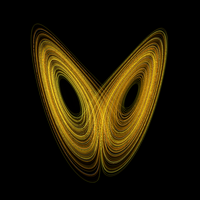It is natural to suppose that, before philosophy enters upon its subject proper - namely, the actual knowledge of what truly is - it is necessary to come first to an understanding concerning knowledge, which is looked upon as the instrument by which to take possession of the Absolute, or as the means through which to get a sight of it. The apprehension seems legitimate, on the one hand that there may be various kinds of knowledge, among which one might be better adapted than another for the attainment of our purpose - and thus a wrong choice is possible: on the other hand again that, since knowing is a faculty of a definite kind and with a determinate range, without the more precise determination of its nature and limits we might take hold on clouds of error instead of the heaven of truth.
This apprehensiveness is sure to pass even into the conviction that the whole enterprise which sets out to secure for consciousness by means of knowledge what exists per se, is in its very nature absurd; and that between knowledge and the Absolute there lies a boundary which completely cuts off the one from the other. For if knowledge is the instrument by which to get possession of absolute Reality, the suggestion immediately occurs that the application of an instrument to anything does not leave it as it is for itself, but rather entails in the process, and has in view, a moulding and alteration of it. Or, again, if knowledge is not an instrument which we actively employ, but a kind of passive medium through which the light of the truth reaches us, then here, too, we do not receive it as it is in itself, but as it is through and in this medium. In either case we employ a means which immediately brings about the very opposite of its own end; or, rather, the absurdity lies in making use of any means at all. It seems indeed open to us to find in the [132] knowledge of the way in which the instrument operates, a remedy for this parlous state; for thereby it becomes possible to remove from the result the part which, in our idea of the Absolute received through that instrument, belongs to the instrument, and thus to get the truth in its purity. But this improvement would, as a matter of fact, only bring us back to the point where we were before. If we take away again from a definitely formed thing that which the instrument has done in the shaping of it, then the thing (in this case the Absolute) stands before us once more just as it was previous to all this trouble, which, as we now see, was superfluous. If the Absolute were only to be brought on the whole nearer to us by this agency, without any chance being, wrought in it, like a bird caught by a limestick, it would certainly scorn a trick of that sort, if it were not in its very nature, and did it not wish to be, beside us from the start. For a trick is what knowledge in such a case would be, since by all its busy toil and trouble it gives itself the air of doing something quite different from bringing about a relation that is merely immediate, and so a waste of time to establish. Or, again, if the examination of knowledge, which we represent as a medium, makes us acquainted with the law of its refraction, it is likewise useless to eliminate this refraction from the result. For knowledge is not the divergence of the ray, but the ray itself by which the truth comes in contact with us; and if this be removed, the bare direction or the empty place would alone be indicated.
The Phenomenology of Mind, 1807, Introduction, G. W. F. Hegel
...may not be. or is it? absolutely?
Subscribe to:
Post Comments (Atom)

No comments:
Post a Comment